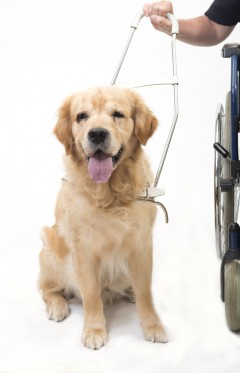I have posted quite a few articles about the Special Population group here on this gym business blog, because I believe it is not only a great market segment from the perspective of a gym owner, but also a noteworthy population to contribute to. Due to a close loved one that I have in my life who falls within the special population group by having a chronic illness, I continue to develop a desire to not only learn about those struggling with physical disabilities but also try to find a way to make more of a holistic difference in their lives.
Finding ways for Special Populations to become more fit and healthy within the fitness industry is just one part of their daily struggle. The physically disabled face a number of challenges on a daily basis. What might be simple activities to the healthy person, can be a challenge and an achievement to the physically disabled. Financial support also becomes a big problem for the physically disabled after a point of time because of the overwhelming cost to manage a disability. Additionally, funds are needed to research and develop tools in order to improve the quality of those lives suffering from physically disabling conditions.
For those gym owners and operators who are looking to put a new face on gym promotions and events and simultaneously want to touch the heart of your members and/or their family members who are struggling with a physically limiting condition, consider coordinating your efforts with or donating a percentage of your promotional proceeds to one of the following great charities.
John Hopkins Medicine Autoimmune Disease Research
Autoimmune disorders have made life very difficult for many and can be life threatening and potentially lead to debilitation. An autoimmune disorder is a chronic condition where the body’s own immune system attacks and destroys its own tissue. This one specific segment of John Hopkins Medicine is specifically researching treatments and tools for Multiple Sclerosis (MS), Rheumatoid Arthritis (RA), Transverse Myelitis (TM), Lupus, and Myositis.
New medicines and treatments have made significant strides just over the last decade. With continuing research and development, better treatments will significantly impact the quality of millions of lives struggling with these types of disorders.
Christopher and Dana Reeve Foundation
Christopher Reeve himself is a patient of spinal injury and he is a quadriplegic, caused by an accident that occurred while riding a horse. After his accident, the Reeve Foundation became a front for research and development to help people with physical disabilities, especially caused due to paralysis. Dana Reeve has also started what is called as the Quality of Life program and she is famous as a care giver among many other attributes. Both Christopher and Dana have passed away but their legacy lives on through the research and programs that they developed to care for the unknown countless others with spinal injuries and family members that care for them.
Canine Support Team
Canines have always been known as man’s best friend. Physically disabled people have always found support and solace in canine friends and the canine support team provides them with exactly that. Training a dog to be the assistant of a physically disabled person is a challenge in itself. Volunteers of the organization spend a lot of time, effort, and resources on training the canines. People with physical disability have to apply for a canine friend and when the application is approved, the dog is assigned to them. The organization was founded in 1989 and from then on, there has been no looking back.
Goodwill Industries
The non-profit organization has been working to train and provide placement services exclusively to the people who are disabled. The organization has a very good track record and registered earnings of more than $4 billion in the year 2011 alone. Originally started in the year 1902, the organization managed to gain some traction only in the late 1920s and early 1930s. After that, the group got a lot of support from around the world. Currently, it has operations in more than 15 countries worldwide.
Topic for Discussion:
What are some other unsung charities that dedicate their causes to those with physical disabilities?
